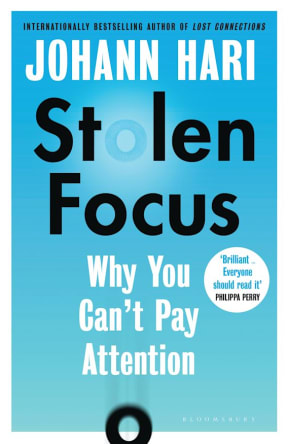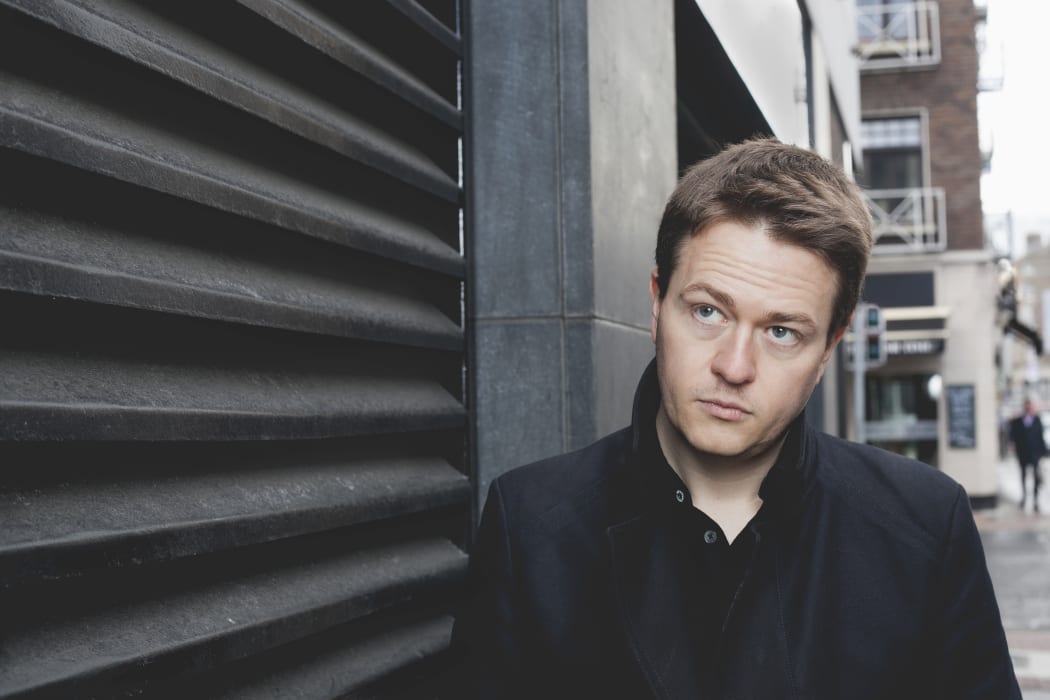Humanity is facing a crisis of mass distraction, says British writer Johann Hari, and we need a collective fight to get our attentional abilities back.

Photo: Todd Trapani / Unsplash
Hari was on a tour of Graceland with his Elvis Presley-loving godson a few years when he made up his mind to investigate the disaster that is our current inability to concentrate.
At 19, his godson spent every waking minute "alternating between WhatsApp, Snapchat, pornography and YouTube".
"It was like he was whirring at the speed of Snapchat where nothing still or serious could touch him."
In Elvis's infamous Jungle Room, Hari got frustrated with his godson's inattention and tried to grab his phone.
The boy stormed off but later, at the Heartbreak Hotel, he confessed something to his godfather: "I know something's really wrong here but I don't know what it is."

Photo: Supplied
For his new book Stolen Focus, Hari travelled the world interviewing over 300 experts and pinpointed 12 factors that can make attention better or worse.
While hugely significant, technology may not be the biggest of these factors, he says.
Brain inflammation caused by air pollution, brain fog from a diet that causes energy spikes and crashes, lack of sleep and less time outdoors are also major contributors to our loss of attention.
Yet we can't be too hard on ourselves individually when our very environment is "pouring acid on our attention the whole time", Hari says.
As the collective attention deficit is an environmental problem, it needs to be tackled with collective action.
"There has to be another level of how we respond to this in which we come together, identify the factors that are doing this to us and deal with those factors."
People have fallen for the "delusion" that they can juggle between multiple tasks, Hari says, but it turns out things like frequently checking texts at work comes with a really big price - the 'switch-cost effect'.
"When you try and do lots of things at the same time you will do all the things you're trying to do much less competently. You'll make more mistakes, you'll remember less, you'll be much less creative."
Hari tries to minimise his own phone-related multitasking by locking all of his devices up in a plastic safe and using a no-internet app called Freedom on his laptop for 4 hours a day.
"I will not sit down and watch a film with my boyfriend unless we both imprison our phones, I will not have dinner with my friends unless we all agree to put our phones in the phone jail.
"It's challenging at first, it's really hard. But the pleasures of focus are so much greater than the pleasures of distraction."

Johann Hari Photo: Kathrin Baumbach
A collective psychological shift is required for internet users to challenge the business models of big internet companies, Hari says.
"Every time you open Facebook or TikTok or whatever it is, they start to make money. The more often you pick it up the more money they make, the longer you scroll the more money they make.
"All of their technical brilliance is geared to one thing - how can we get people to pick up more and stay on longer.
"As long as that's their business model, they will invent more and more inventive ways to hack and invade our attention."
The technology already exists for sites like Facebook to begin treating their users as customers instead of "the thing they sell to advertisers" in the form of personal data, he says.
These platforms could then be redesigned to better cater to and support our individual wants, including the ability to pay attention.
"No, you don't get to do this to us" needs to be our collective message to tech corporations, Hari says.
"We need to realise this is being done to us… we own our own minds, we own our own societies and we can take our attention back if we want to.
"We didn't all just lose willpower in the last 15 years… big changes happened to us. They've affected almost everyone… and we can deal with them if we want to.
"There are solutions… they're there, they're waiting for us. We just have to turn our attention to them and fight for them.
"Have we crossed a tipping point where we can't summon the attention to get our attention back? I don't think we have.
"We don't have to tolerate an environment where our attention is being invaded and trashed in this way."

